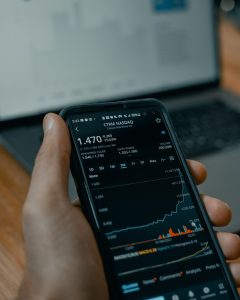Forex, or foreign exchange, refers to the global market for trading currencies. It is the largest and most liquid market in the world, with an estimated daily trading volume of $6.6 trillion as of 2019. However, the forex market has undergone significant changes over the years, leading to its current state.
One of the major changes in the forex market is the shift from traditional trading to electronic trading. In the past, forex trading was conducted through physical exchanges, such as the New York Stock Exchange. However, the introduction of electronic trading platforms in the 1990s revolutionized the market, allowing traders to buy and sell currencies from anywhere in the world. This has led to increased competition and lower transaction costs, making forex trading more accessible to individual investors.
Another important development in the forex market is the rise of algorithmic trading. Algorithmic trading refers to the use of computer programs to execute trades based on pre-defined rules and algorithms. This has allowed traders to execute trades faster and more efficiently, leading to increased liquidity and tighter bid-ask spreads. However, it has also led to concerns of market manipulation and the potential for flash crashes.
The globalization of the economy has also had a significant impact on the forex market. As international trade and investment have increased, so has the demand for foreign currencies. This has led to the growth of the forex market, as traders seek to profit from fluctuations in exchange rates. However, it has also led to increased volatility and uncertainty, as geopolitical events and economic data can have a significant impact on currency values.
One of the most significant events in the history of the forex market was the adoption of the floating exchange rate system in the 1970s. Prior to this, most countries fixed their exchange rates to the US dollar, which was backed by gold. However, the collapse of the Bretton Woods system in 1971 led to the abandonment of the gold standard and the adoption of floating exchange rates. This allowed currencies to fluctuate freely based on market forces, leading to increased volatility and uncertainty.
In recent years, the forex market has faced a number of challenges, including increased regulation and the rise of alternative trading platforms. In response to the 2008 financial crisis, regulators around the world introduced a number of reforms aimed at increasing transparency and reducing risk in the financial system. This included the introduction of new rules for forex trading, such as mandatory reporting of trades and increased capital requirements for market makers.
At the same time, the rise of alternative trading platforms, such as cryptocurrencies and decentralized exchanges, has led to increased competition for the forex market. While these platforms are still relatively new and untested, they have the potential to disrupt traditional forex trading and create new opportunities for investors.
In conclusion, the forex market has undergone significant changes over the years, reflecting the evolution of the global economy and advances in technology. While these changes have created new opportunities for traders and investors, they have also led to increased volatility and uncertainty. As the forex market continues to evolve, it will be important for regulators and market participants to adapt and respond to new challenges and opportunities.





